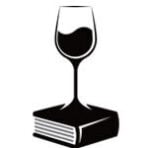Sonoma State University (Wine Business Institute)

Nestled in the vineyards of California’s North Coast, Sonoma State University (SSU) offers something few universities can claim: a business education rooted in the terroir of wine country. Established in 1961 and located in Sonoma County, SSU created the Wine Business Institute (WBI) in 2001 to serve the needs of the region’s booming wine industry. Today, it’s the only institution in the United States to offer a full suite of degrees specifically in wine business, not winemaking.
A Curriculum Built for the Industry
Unlike most wine programs, SSU’s offerings are business-first. Students can pursue a Bachelor of Science in Wine Business, an MBA or M.S. in Wine Business, or enroll in a Wine & Culinary Arts Certificate program. The approach is modular and hands-on, emphasizing case studies, market analysis, brand strategy, and wine-focused financial modeling. The curriculum features deep dives into topics like hospitality management, consumer behavior, and the unique logistics of the Napa-Sonoma supply chain.
All degree tracks require either an internship or a self-directed capstone project. This isn’t theoretical work—students often build branding campaigns, market research, or launch plans for real wineries.
Admissions Snapshot
For undergraduates, SSU’s general CSU admission requirements apply, including college-prep coursework and a minimum GPA. Graduate students must hold a relevant bachelor’s degree and a 3.0+ GPA; the GMAT is occasionally required for the MBA program.
Faculty, Alumni, and Industry Leaders
The WBI draws from both academia and the trade. Faculty include respected names in consulting and marketing, such as Michael Hsu, and guest instructors have included Cathy Corison, the famed Napa winemaker. Alumni have gone on to work with top-tier brands—Justin Howard-Snyder at The Prisoner Wine Co. and Emily Heaton at Copain are just two examples.
Reputation & Outcomes
SSU graduates are consistently placed in roles across the wine business spectrum: brand managers, financial analysts, hospitality leads, and direct-to-consumer strategists. Testimonials often cite the immediate relevance of the program’s real-world projects. One student said, “Our team worked on branding for a Napa startup—having that in our portfolio made all the difference.”
Advantages and Limitations
Pros
✔ Specialized curriculum focused entirely on wine business.
✔ Strong industry ties and regional access to top wine brands.
✔ Real-world capstone projects and resume-building internships.
Cons
✘ Not a fit for those seeking winemaking or viticulture training.
✘ No on-campus winery facilities.
Signature Offerings
SSU also serves mid-career professionals through its Wine Executive Course and hosts the North Bay Wine Industry Symposium, an annual gathering of students and industry executives. It also publishes the Sonoma State Wine & Grape Report, a respected benchmarking report used across the industry.
Regional Relevance and Identity
The curriculum leans heavily into the regional wine identity, focusing on Sonoma County AVAs like Russian River Valley and Carneros. Students engage with varietals like Pinot Noir, Chardonnay, and Zinfandel, and learn how sustainability and climate considerations are reshaping wine marketing and production in cooler microclimates.
By the Numbers
~200 undergraduate Wine Business majors
~30 graduate students per cohort
Age range typically 18–30, with balanced gender representation
WBI-affiliated but part of the larger public SSU system
Accredited by WSCUC and affiliated with ASEV and NACUFS
Final Take
Sonoma State’s Wine Business Institute is ideal for students who want to manage the wine world rather than make the wine itself. With unparalleled access to the business side of one of the world’s most prestigious wine regions, it remains one of the most distinctive and practical wine business programs in the country.
